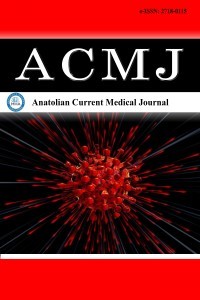1.
Galani A, Zikopoulos A, Papandreou L, Mastora E, Zikopoulos K, Makrydimas G. Prenatal diagnosis of fetal jejunal atresia: a case report. Cureus. 2021;13(10):e18947.
2.
Burjonrappa SC, Crete E, Bouchard S. Prognostic factors in jejuno-ileal atresia. Pediatr Surg Int. 2009;25(9):795-798. doi:10.1007/s00383-009-2422-y
3.
Schmedding A, Hutter M, Gfroerer S, Rolle U. Jejunoileal atresia: a national cohort study. Front Pediatr. 2021;9:665022.
4.
Burjonrappa S, Crete E, Bouchard S. Comparative outcomes in intestinal atresia: a clinical outcome and pathophysiology analysis. Pediatr Surg Int. 2011;27(4):437-442. doi:10.1007/s00383-010-2729-8
5.
Xiong X, Lu W, Xing F, et al. Clinical characteristics of postoperative necrotizing enterocolitis in patients with congenital jejunoileal atresia and its risk factors. World J Pediatr Surg. 2024;7(1):e000622.
6.
Virgone C, D'antonio F, Khalil A, Manzoli L, Giuliani S. Accuracy of prenatal ultrasound in detecting jejunal and ileal atresia: systematic review and meta-analysis. Ultrasound Obstet Gynecol. 2015;45(5):523-529.
7.
Iacobelli BD, Zaccara A, Spirydakis I, et al. Prenatal counselling of small bowel atresia: watch the fluid! Prenat Diagn. 2006;26(3):214-217.
8.
Dalla Vecchia LK, Grosfeld JL, West KW, Rescorla FJ, Scherer L, Engum SA. Intestinal atresia and stenosis: a 25-year experience with 277 cases. Arch Surg. 1998;133(5):490-497.
9.
Stollman TH, de Blaauw I, Wijnen MH, et al. Decreased mortality but increased morbidity in neonates with jejunoileal atresia; a study of 114 cases over a 34-year period. J Pediatr Surg. 2009;44(1):217-221.
10.
Røkkum H, Johannessen H, Bjørnland K. Perioperative and long-term outcome in patients treated for jejunoileal atresia. J Pediatr Gastroenterol Nutr. 2023;76(4):434-439.
11.
Tahkola E, Luoto T, Pakarinen MP. Management and outcomes of intestinal atresia-a single institution experience from 1947 to 2019. J Pediatr Surg. 2024;59(11):161622.
12.
Kurdi M, Mokhtar A, Elkholy M, et al. Antimesenteric sleeve tapering enteroplasty with end-to-end anastomosis versus primary end-to-side anastomosis for the management of jejunal/ileal atresia. Asian J Surg. 2023;46(9):3642-3647.
13.
Aboalazayem A, Ragab M, Magdy A, Bahaaeldin K, Shalaby A. Outcome of tapering enteroplasty in managing jejunoileal atresia. J Indian Assoc Pediatr Surg. 2022;27(6):666-669.
14.
Takahashi D, Hiroma T, Takamizawa S, Nakamura T. Population-based study of esophageal and small intestinal atresia/stenosis. Pediatr Int. 2014;56(6):838-844.
15.
Casaccia G, Trucchi A, Nahom A, et al. The impact of cystic fibrosis on neonatal intestinal obstruction: the need for prenatal/neonatal screening. Pediatr Surg Int. 2003;19(1-2):75-78.
16.
Casaccia G, Trucchi A, Spirydakis I, et al. Congenital intestinal anomalies, neonatal short bowel syndrome, and prenatal/neonatal counseling. J Pediatr Surg. 2006;41(4):804-807.

